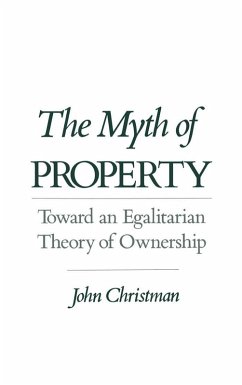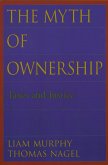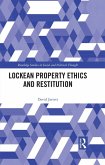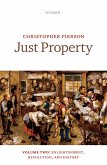The Myth of Property is the first book-length study to focus directly on the variable and complex structure of ownership. It critically analyzes what it means to own something, and it takes familiar debates about distributive justice and recasts them into discussions of the structure of ownership. The traditional notion of private property assumed by both defenders and opponents of that system is criticized and exposed as a "myth." The book then puts forward a new theory of what it means to own something, one that will be important for any theory of distributive justice. This new approach more adequately reveals the disparate social and individual values that property ownership serves to promote. The study has importance for understanding the reform of capitalist and welfare state systems, as well as the institution of market economies in former socialist states, for the view developed here makes the traditional dichotomy between private ownership capitalism and public ownership socialism obsolete. This new approach to ownership also places egalitarian principles of distributive justice in a new light and challenges critics to clarify aspects of property ownership worth protecting against calls for greater equality. The book closes by showing how defenders of egalitarianism can make use of some of the ideas and values that traditionally made private property appear to be such a pervasive human institution.
Dieser Download kann aus rechtlichen Gründen nur mit Rechnungsadresse in A, B, BG, CY, CZ, D, DK, EW, E, FIN, F, GR, HR, H, IRL, I, LT, L, LR, M, NL, PL, P, R, S, SLO, SK ausgeliefert werden.









